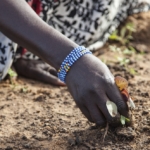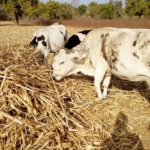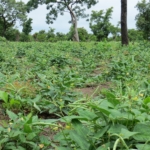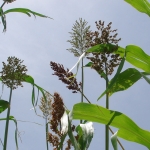


Wageningen University
ICRISAT Mali, AMEDD, IER
Mali
5/2013—5/2016
Farmers in the cotton zone around Koutiala in southern Mali rely on cotton and livestock for income, and on maize, sorghum, and pearl millet as staple food crops. Crop-livestock interactions are key to these farming systems. Increasing population pressure, climate change, and urbanization drive change in this region, which is also characterized by a vicious cycle of land degradation and decreasing soil fertility, compromising crop yields. Agroecological intensification is proposed as a promising way to address the challenge of increasing food production while preserving the environment and improving farmer livelihoods. Past research and development projects have identified and promoted various technologies for improved farm productivity, but adoption rates are often limited. This is often caused by insufficient knowledge of farmer constraints and priorities. The need exists to move from pushing best-bet technologies to tailoring options that fit different farm types. This project uses a participatory systems analysis approach to better understand farm systems in the region, their components, and the interactions and trade-offs at farm and village scale, and to analyze the effect of intensification options on livelihoods, agricultural productivity, and environmental health. The project combines participatory on-farm experimentation with simulation modeling to explore the multifaceted implications of interventions and various trajectories of change. Based on a farm M&E network, regional project partners and stakeholders engage in different aspects of the research in an open, adaptive learning process. This process is geared toward stakeholders’ enhanced capacity to drive the development process and benefit from contextualized agricultural research as well as researchers’ enhanced capacity to conduct systems analysis. The project endeavors, via the participatory approach of co-learning with various stakeholders, to create positive change in the behavior, knowledge, skills, and attitudes of male and female farmers, traders and private investors, development workers and extension agents, researchers and policymakers. These outcomes are monitored and evaluated on a regular basis so that project methodology and actions can be adapted each year. Through working toward the outcomes, this project contributes to realizing impact in four domains, including increased agricultural productivity, improved household food security and livelihoods, environmental health, and empowered farmer organizations.
The NUANCES framework for integrated farming systems analysis is adapted, refined, tested, and distributed to trained users in the region’s research community. Improved knowledge and understanding of 1) the trajectories and functioning of different farm types in the region, 2) the interactions and feedbacks between farm components and between farms at the “terroir” level, and 3) farmer priorities, constraints, and trade-offs documented and communicated to the regional and international research communities. Real-world and modeling evidence of the effects of various intensification strategies on farm productivity, livelihoods, and the environment in different future scenarios of socioeconomic-institutional and climate conditions are documented, communicated to, and discussed with local stakeholders, development agents, policymakers, and scientists. Network of project partners, beneficiaries, and stakeholders are established and functional with regular information exchanges (workshops, farm visits, digital) for reporting and discussing research results and deciding future project directions. Assess the potential of intercropping cowpea and maize with two spatial arrangements.
This project will develop and apply a framework to understand crop-livestock farming systems in the southern Sudanean zone of Mali, their components, and the interactions and trade-offs, the final goal being to optimize the system’s productivity.
The specific objectives of the inception phase of the project are:
The deliverables of the inception phase of this project are:




